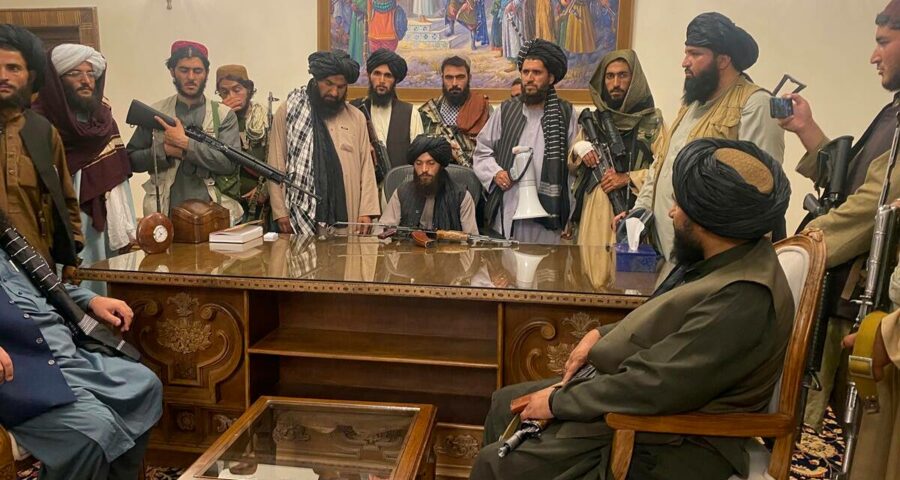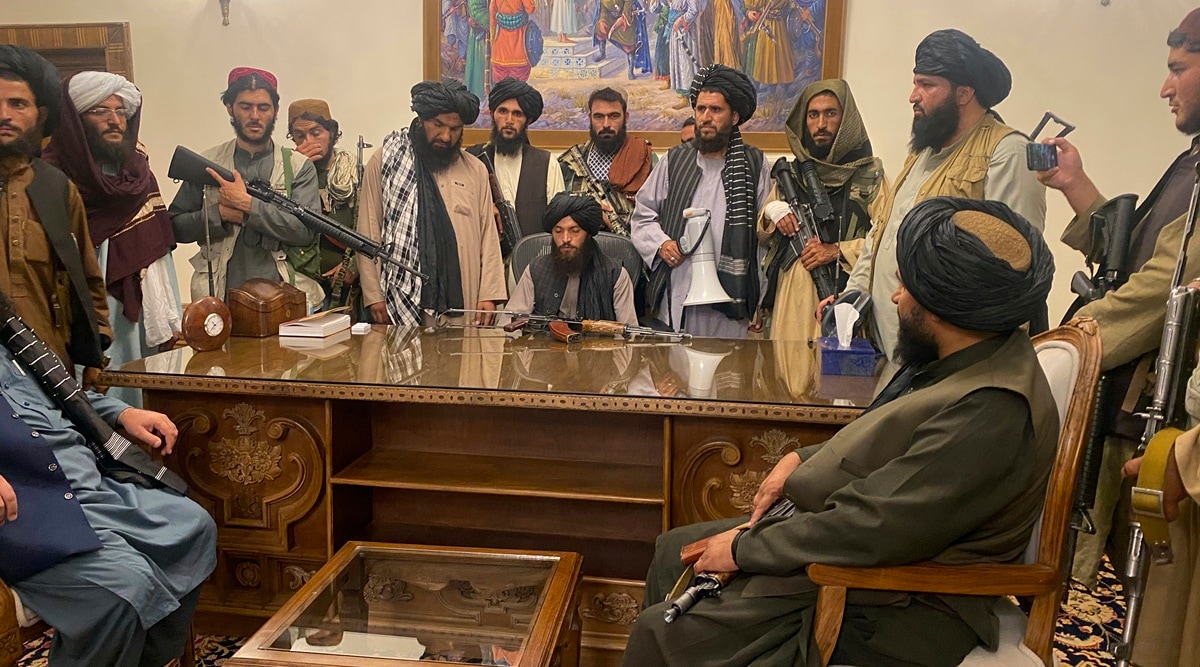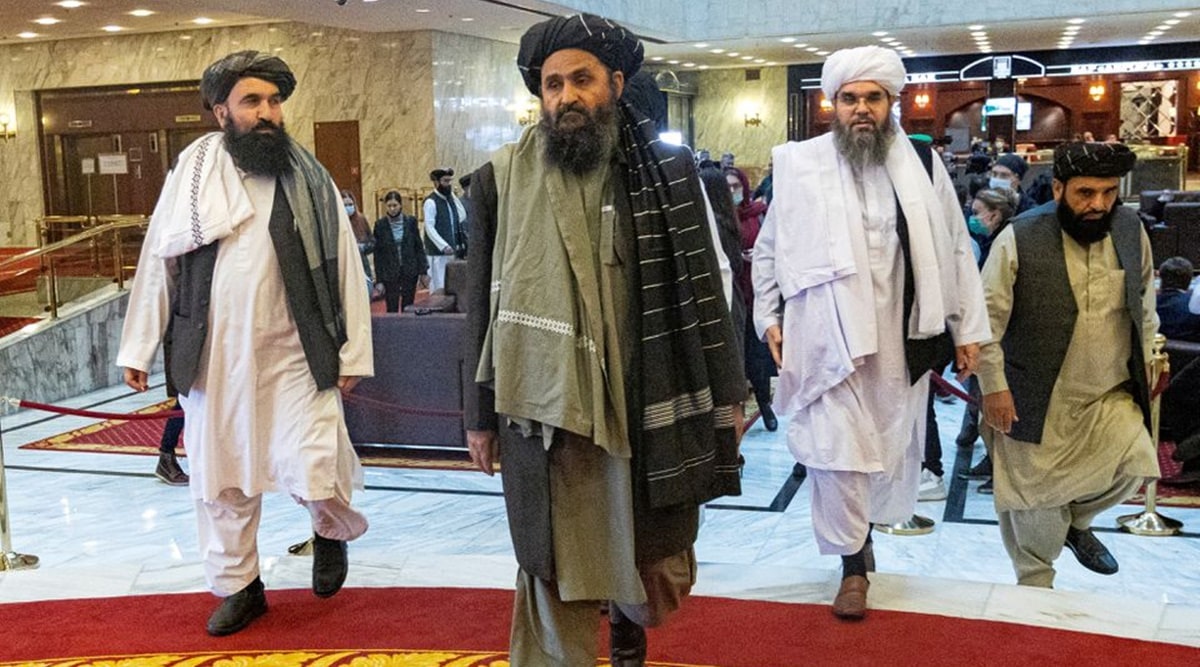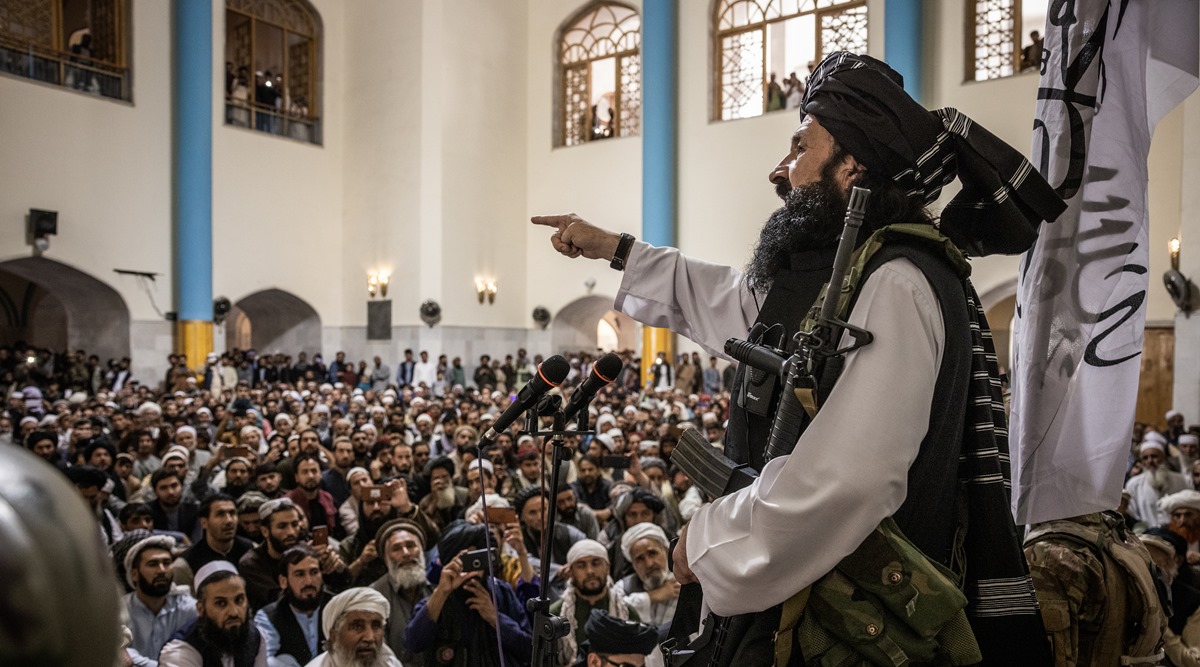The list of ministers was the clearest indication yet that the group sees power as something to be shared exclusively among the victors, rather than fulfilling their promise of an inclusive government.
Written by Douglas Schorzman
The Taliban formally declared a caretaker government Tuesday, appointing acting Cabinet ministers who were largely loyalists from the group’s first years of rule in the 1990s.
The list of ministers was the clearest indication yet that the group sees power as something to be shared exclusively among the victors, rather than fulfilling their promise of an inclusive government that factored in the reality of a changed Afghanistan where women and ethnic minorities were represented in decision-making.
Though many of the new government’s senior figures have been in similar roles within the Taliban for years, relatively little is known about them. Here are details about some of them, based on New York Times reporting.
Mullah Muhammad Hassan, prime minister
Seen as one of the founding members of the Taliban in the 1990s, Hassan will hold the prime ministerial role that looks after the day to day of governing.
He was a former deputy prime minister and foreign minister during the Taliban’s government that took control in the 1990s. During the two decades of insurgency after the Taliban fell from power, he remained low-profile and in the shadows, helping to coordinate and run the Taliban’s leadership council in Quetta, Pakistan.
Mullah Abdul Ghani Baradar, deputy prime minister
Baradar, who Interpol says was born in Uruzgan province in 1968, served along with Mullah Mohammad Omar, the Taliban’s founder, in the fight against the Soviet occupation. He held senior posts in the first Taliban government, starting in 1996, and gained a reputation as one of the most brutal commanders on the battlefield as the Taliban sought to suppress their opponents among the northern resistance. He was serving as deputy minister of defense in 2001, and like other leaders, he fled to Pakistan.
When the Taliban reformed as an insurgency, Baradar was Omar’s principal deputy, and he led the movement’s military operations. He oversaw a sharp escalation of the insurgency in 2006 but was also engaged in secret consultations with the emissaries of President Hamid Karzai and international assistance organizations.
Sirajuddin Haqqani, interior minister
Haqqani, who is thought to be 48 and is the son of mujahedeen commander and Haqqani network founder Jalaluddin Haqqani, is emerging as one of the biggest winners in the return of the Taliban to power. He will be the acting interior minister, in charge of law and order and possibly even local governance, and has also ensured his commanders’ positions in other key departments of the government.
In 2016, he became one of two deputies to the Taliban’s supreme leader, Sheikh Hibatullah Akhundzada, overseeing a sprawling web of fighters and religious schools, and leading much of the Taliban’s military efforts.
His Haqqani network, known for its close ties to the Pakistani intelligence service, was the most dogged opponent of the U.S. presence in Afghanistan. It was responsible for hostage-taking, targeted assassinations and suicide bombings, including some of the huge truck bombings that killed civilians in Kabul.
Mawlawi Muhammad Yaqoub, defense minister
Yaqoub, who is thought to be about 30, is the head of the Taliban’s military commission, and is the oldest son of Omar.
His name came to public attention during the Taliban’s leadership succession in 2016. Though Yaqoub had the support of some of the movement’s military commanders, concerns about his youth became a factor in the eventual decision to choose Akhundzada as the insurgency’s overall leader.
In the years since, Yaqoub has risen in prominence. And in recent days he took an increasingly public role in trying to keep order among the group’s triumphant rank and file, warning that anyone caught looting “will be dealt with,” and any theft of government property would be a betrayal of the country. “There is no permission to take a car or a house from someone or anything else,” he said.
Amir Khan Muttaqi, foreign minister
Muttaqi, who until recently was the head of the Taliban’s powerful Invitation and Guidance Commission responsible for persuading many members of the Afghan army and police forces to surrender in recent months, has been rewarded with the key post of foreign minister.
He served as information and culture minister, then education minister, in the first Taliban government. During the two decades of the Taliban insurgency, he helped shape the group’s strategy for propaganda and psychological warfare, before serving as chief of staff to the supreme leader and as a member of Taliban political delegation in Qatar.
Abdul Haq Wasiq, intelligence chief
Wasiq was one of the five Guantánamo Bay prisoners released in exchange for the last U.S. prisoner of war, Sgt. Bowe Bergdahl. Upon his release, he arrived in Doha, Qatar, and became a key member of the Taliban’s talks with the U.S., spending months negotiating with his former captors their departure from Afghanistan. He is a native of Ghazni province and is believed to be in his early 50s.
While all five of the detainees who were part of the Bergdahl exchange have gotten senior positions in the new government — three of them ministerial roles, one deputy minister and one governor — Wasiq steps into the key role of leading the same intelligence agency where he served as deputy in the 1990s. The intelligence agency was central to the Taliban’s hold on power as a police state that ran wide networks of informants.
His interrogation files from his time in Guantánamo accuse Wasiq of close ties to al-Qaida, including arranging for the terrorist group to provide training for intelligence agents of the Taliban government.
Zabihullah Mujahid, deputy information and culture minister
Mujahid, who says he is 43 and a native of Paktia province, has been the Taliban’s main spokesperson and chief propagandist for years, answering reporters’ calls and keeping up a barrage of social media posts. But the world did not see his face until Aug. 17, when he conducted the Taliban’s first in-person news conference in Kabul.
Since then, he has played a primary role in trying to urge Afghans and the world to accept the Taliban as legitimate rulers of Afghanistan, and in saying that the group was turning away from some of the harsh policies of its first tenure in power.
“We don’t want Afghanistan to be a battlefield anymore — from today onward, war is over,” he said at the news conference.
Khalil Haqqani, minister for refugees
Haqqani is a special representative of the Taliban’s supreme leader, and an uncle of the Taliban’s deputy leader. He has long been an important fundraiser for the Haqqani network, with close ties in the Gulf region, and he is included on U.S. and U.N. lists of global terrorists.
In recent days, he has played a public role in establishing Taliban authority in Kabul. Just a few days after Kabul’s fall, he appeared at a prominent mosque within the city and told a cheering crowd that the Taliban’s “first priority for Afghanistan is security — if there is no security, there is no life.”
He has been the primary Taliban figure in securing bayat, an Islamic oath of allegiance, from prominent Afghan figures over the past two weeks.
Source: Read Full Article





